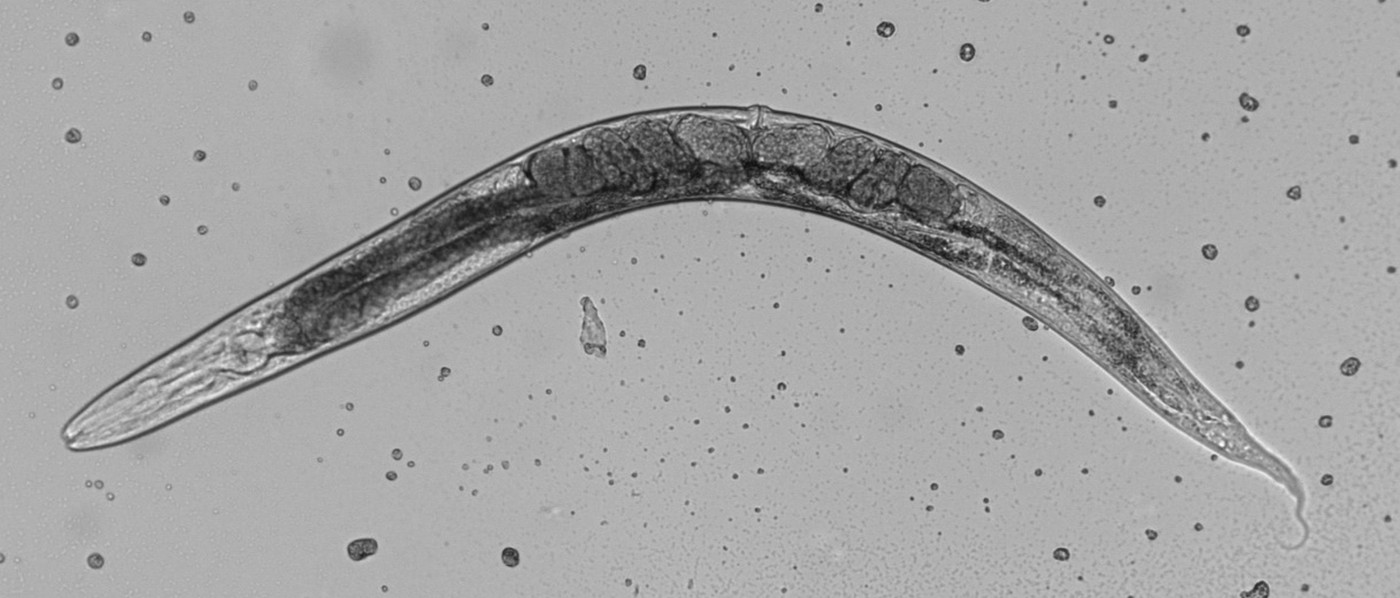Rowan Team Receives $1.6 Million to Study SOD1 in Gut-brain Communication in Worms
Written by |

A team at the Rowan University School of Osteopathic Medicine has received a $1.6 million grant to study the role of the SOD1 protein — whose gene is often mutated in amyotrophic lateral sclerosis (ALS) — in the communication between the gut and the brain.
The National Institutes of Health (NIH) grant was awarded to Howard Chang, PhD, a professor who recently moved to Rowan from Binghamton University (State University of New York). His study, “The role of superoxide dismutase SOD-1 in microbe-gut-brain interaction,” will be conducted over the next five years.
The collection of microorganisms living in our guts (gut microbiota) is increasingly recognized as a key factor determining susceptibility to certain diseases, including those of the brain.
In ALS, studies have shown that people with the condition have an abnormal gut microbiota, which contributes to disease onset and progression. Among other things, this imbalance in gut microorganisms appears to influence the levels of neurotransmitters in the brain, causing a prolonged nerve cell activation that damages motor neurons (nerve cells that control voluntary movement and are lost in ALS).
This bidirectional communication system between the brain and the gut, which is made through nerve and immune cells, is called the gut-brain axis. But exactly how microbes in the gut affect brain functions is still largely unknown.
“A healthy gut microbiome helps maintain immunity but in addition to the immune system a healthy microflora improves your psychological status, helps influence aging and can influence the development of dementia and neurodegeneration,” Chang said in a press release. “We’re trying to figure out how a microbe in the gut influences the physiology in the brain.”
Recently, Chang and his team found that the SOD1 protein, an antioxidant that helps to mop up excess oxygen radicals produced by cellular metabolism, can influence how the nematode worm Caenorhabditis elegans behaves when it has disease-causing bacteria in its gut.
This previously unknown function of SOD1 indicated that this protein may have an important role in regulating how microbes influence the gut-brain axis. To further test this, Chang’s team first will determine how bacteria in the gut can activate SOD1 in the same C. elegans model.
Then, the researchers will investigate if the SOD1-dependent response is carrying from the gut to the nervous system through a neuropeptide, which is a small protein fragment used by neurons to communicate with each other.
Finally, the team will examine how SOD1-dependent responses regulate behavioral responses in a third step. Together, the work is expected to shed light on how microbes affect communication in the gut-brain axis, and how SOD1 participates in that process.
“Our results may help to elucidate the underlying mechanisms of gut [imbalance] among elderly adults and patients with neurodegenerative diseases and may lead to the identification of potential therapeutic target,” Chang wrote in the grant’s abstract.
“We hope to identify new layers, different genes and proteins, that will hopefully lead to some kind of therapeutic target to improve the condition of ALS,” he added.





